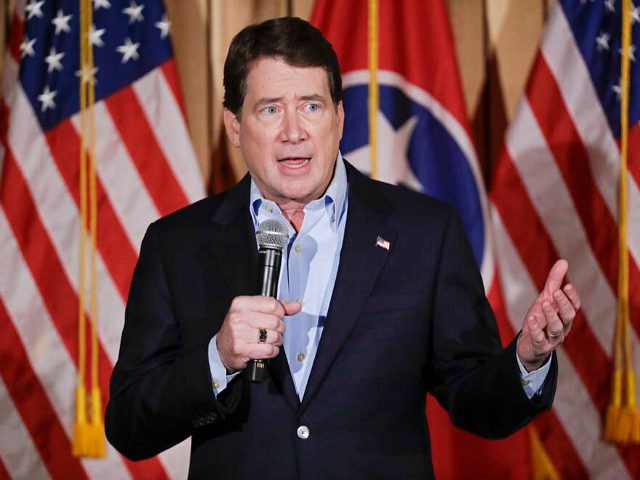Senator Bill Hagerty (R-TN) has introduced a bill that takes aim at a key vulnerability of Big Tech — their increasing resemblance to common carriers.
The bill, called the 21st Century FREE Speech Act, follows a legal opinion from Justice Clarence Thomas arguing that censorship of Americans on tech platforms could be ended if they were regulated as common carriers or places of public accommodation.
For tech companies with more than 100 million monthly active users, the bill would abolish Section 230 of the Communications Decency Act, the bill that tech companies rely on to censor their users with impunity.
The bill would replace it with language that preserves liability protection for hosting third-party content (a critical protection that allows platforms to host a wide range of speech without legal risk) while eliminating the broad immunity for censorship that existed under Section 230.
While the bill allows for limited content moderation to maintain family-friendly environments, its regulation of tech companies as common carriers means that all Americans will be able to access them on reasonable, non-discriminatory terms.
The tech platforms will also have to disclose their content moderation techniques to users, meaning that platforms will not be able to create discriminatory technology without users knowing. Users will also have a private right of action against tech companies, allowing them to sue any company that violates these principles.
In an op-ed for the Wall Street Journal, Sen. Hagerty noted that common carriage laws have long been applied to communications technologies relied on by the American public.
As Justice Clarence Thomas noted in a recent Supreme Court opinion, common carriers—such as trains or phone networks, which are essential to everyday goings-on, connecting people and information—have historically been subject “to special regulations, including a general requirement to serve all comers” without discrimination. The same logic should apply today to Big Tech.
Adam Candeub, a tenured law professor at Michigan State University and expert in communications and antitrust law, has praised Sen. Hagerty’s bill.
Candeub was acting director of the National Telecommunications and Information Agency (NTIA) under Trump, where he drafted the President’s flagship tech regulation proposal (Trump lost re-election before they could be implemented).
“In contrast to some other well-intentioned but flawed bills from Republicans at the federal and state level, Senator Hagerty’s bill packs a real punch,” Candeub told Breitbart News.
“It’s a novel and innovative bill that protects American consumers from runaway censorship by Silicon Valley tech overlords while preserving First Amendment principles.”
Sen. Hagerty’s bill has already drawn fire from Big Tech’s paid defenders.
Mike Masnick and the founders of technology blog Techdirt have long been taking money from Google, Yelp, and other tech companies, as disclosed by their think-tank the Copia Institute.
In 2012, legal action forced Google to disclose that Masnick is the author of several articles commissioned by the Google-funded Computer and Communications Industry Association.
Even though Sen. Hagerty’s bill must still fight its way through a Democrat-controlled legislature, Google-funded Masnick has rushed to condemn it, calling it “nonsense” and “unconstitutional madness” in a blog for Techdirt.
Allum Bokhari is the senior technology correspondent at Breitbart News. He is the author of #DELETED: Big Tech’s Battle to Erase the Trump Movement and Steal The Election.

COMMENTS
Please let us know if you're having issues with commenting.